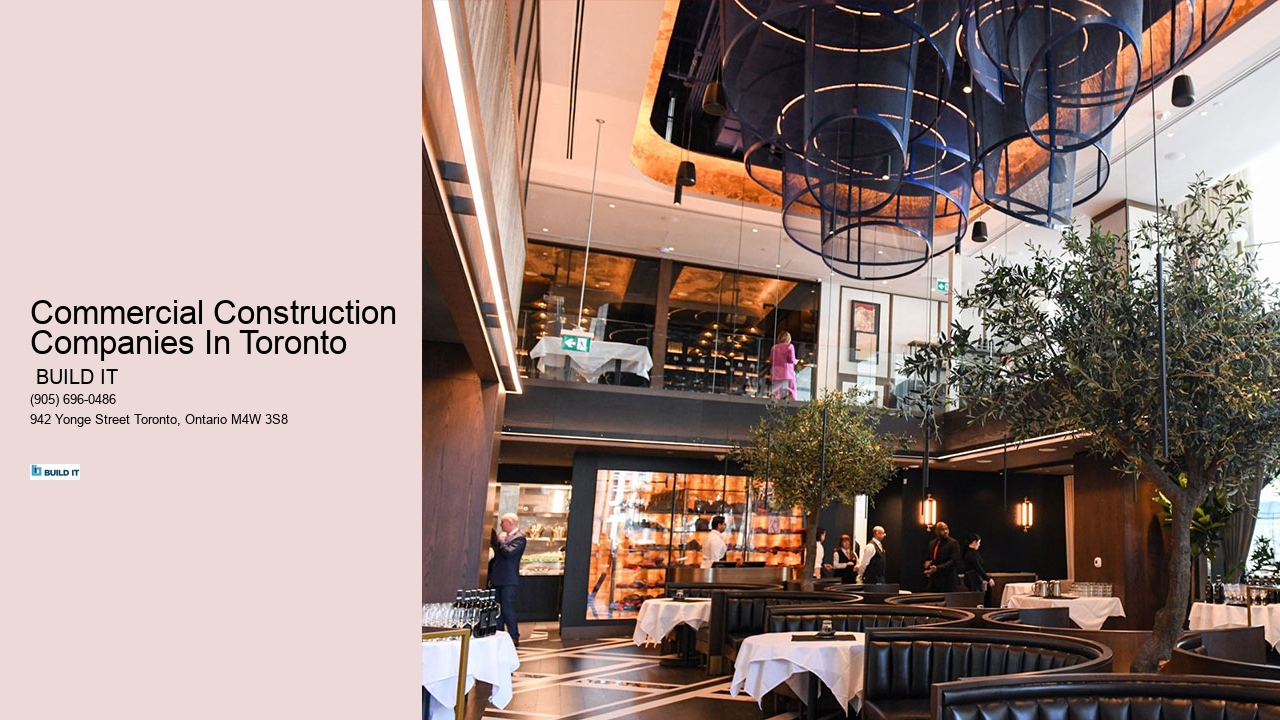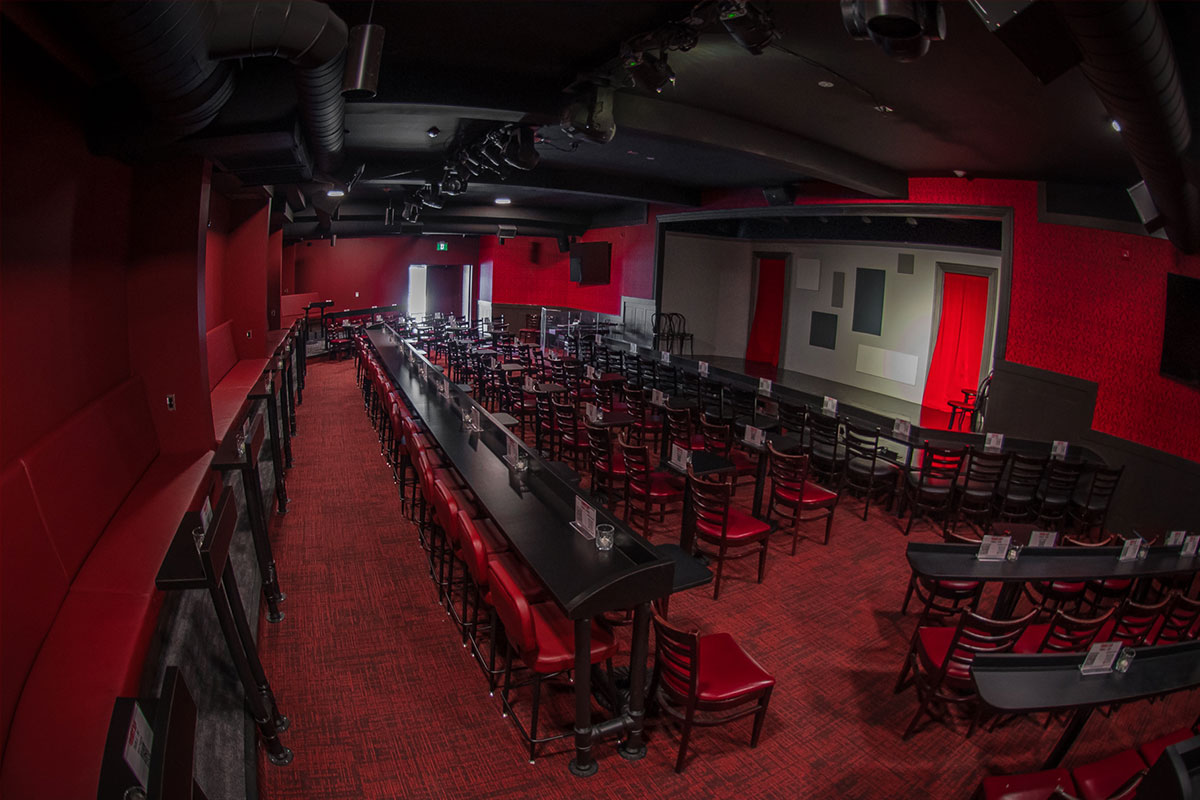

| Local & Regional Commercial Contractors | |
|---|---|
| Commercial Contractors In [Your City] | Trusted professionals delivering top-tier commercial builds in your area. |
| Commercial Contractor Etobicoke | Licensed Etobicoke contractors specializing in business construction. |
| Commercial General Contractor GTA | Expert general contractors for commercial projects throughout the GTA. |
| Commercial Contractors Near Me | Nearby commercial building professionals offering timely service and quality. |
| General Contractor For Commercial | Skilled general contractors managing projects from ground-up to finish. |
At BUILD IT Toronto, we create commercial and industrial spaces that empower businesses to grow and thrive in Canada’s most energetic city. Our reputation for delivering quality, innovation, and seamless collaboration has earned us the trust of top-tier brands and entrepreneurs who count on us to turn their visions into reality—on schedule, on budget, and with unmatched craftsmanship. From trendy eateries and retail stores on Queen West to modern medical clinics in North York and efficient warehouses in Scarborough, we’ve done it all—and we’re only getting started.
What makes us different? We’re not just contractors—we’re full-scope construction partners. Our team manages every detail, from pre-construction planning and permit approvals to full design-build delivery, construction oversight, and turnkey completion. By housing all services under one roof, we streamline the process and reduce delays, while keeping communication open at every stage.
Our project managers, supervisors, and tradespeople understand Toronto’s unique construction challenges—from zoning bylaws to tight job sites. Whether we’re working downtown, in Vaughan, Mississauga, or Etobicoke, we consistently deliver top-tier results. We specialize in diverse sectors like retail, medical, hospitality, office, industrial, and franchise development.
We take pride in our work and our relationships. At BUILD IT Toronto, we treat clients as partners, not just customers. Our team listens carefully, aligns solutions to your business goals, and uses real-time tools to ensure transparency from start to finish.
In a fast-paced city like Toronto, your space must be as dynamic as your business. That’s why we’re here—to build exceptional spaces that work hard and look great. Let’s build it together.

The successful closure of a commercial construction project hinges on the pre-established criteria that define completion. These benchmarks often include meeting the specifications detailed in the contract, passing all required inspections, and obtaining necessary occupancy permits. Commercial contractors must ensure that all aspects of the building meet or exceed the standards set forth by local regulations and client expectations.
A crucial step towards project close-out is undergoing final inspections. This process involves local authorities and possibly third-party inspectors reviewing the construction work to confirm it adheres to codes and zoning laws. Additionally, approvals are needed for systems such as electrical, plumbing, fire safety, and HVAC. Once these inspections are passed successfully, certificates of occupancy can be issued – a green light signifying the project's readiness for use.
Punch lists itemize work that has not been completed or requires correction before final handover. Contractors must address each point diligently; this may involve minor repairs, cleaning tasks, or finishing touches that ensure every aspect of the project meets contracted terms. The goal is to resolve all issues so that nothing impedes final acceptance by the client.
Upon fulfillment of physical construction tasks comes documentation turnover. Contractors provide clients with critical documents including warranties, operation manuals, as-built drawings, maintenance guides, and any other materials relevant to future building management. Proper documentation ensures smooth transition from construction to operation phases.
With construction complete and documentation handed over, attention turns toward financial settlements. Final invoices are issued for any remaining balances on contracts; lien waivers are collected from subcontractors to protect clients against future claims. It’s essential that all accounts be settled properly to avoid legal complications post-project closure.
Finally, a retrospective meeting provides an opportunity for both contractor teams and clients to reflect on what went well during the project lifecycle as well as areas needing improvement in future endeavors. Lessons learned can then be documented for continuous improvement in processes—culminating in better efficiency and client satisfaction in subsequent commercial construction projects.
Before embarking on any multi-phase commercial build, it's essential to have a clear vision of the final product. This includes detailed plans and specifications that outline every aspect of the project. Clients, architects, and construction teams must be in sync regarding the goals and requirements of the build. A well-defined scope helps prevent scope creep and ensures that everyone is working towards a common objective.
Multi-phase projects require meticulous planning to ensure each phase transitions smoothly into the next. An effective strategy is to break down the project into smaller, manageable phases, each with its own set of deliverables, milestones, and deadlines. This approach allows for adjustments along the way without derailing the entire project. Regularly review progress against your plan to identify potential issues early on.
Contracts are vital for managing expectations and responsibilities throughout a multi-phase build. They should clearly define the scope of work, payment schedules, change order processes, and dispute resolution procedures for each phase of construction. Ensure all parties have reviewed and agreed upon these terms before commencing work to minimize misunderstandings or legal complications down the line.
Clear communication channels are paramount in managing complex builds. Establish regular meetings with stakeholders to discuss progress, challenges, and upcoming tasks. Utilize project management tools that allow team members to update progress in real-time so that everyone stays informed about current status and future needs.
Identify potential risks at every stage of your commercial build — from material delays to labor shortages — and develop contingency plans accordingly. Risk management strategies should be revisited regularly as new phases commence or when significant changes occur within ongoing phases.
Maintain high standards throughout all construction phases by implementing rigorous quality control processes. This includes regular inspections, compliance checks with local building codes, and ensuring workmanship aligns with client expectations. Consistent quality control not only guarantees a better end product but also helps maintain timelines by avoiding rework due to errors or oversights.

Through regular training, safety plans, OSHA compliance, inspections, and use of protective equipment.
Search local directories, read reviews, check licensing boards, or ask for referrals in your industry.
They develop detailed estimates, manage costs, and track expenses against budget throughout the build.